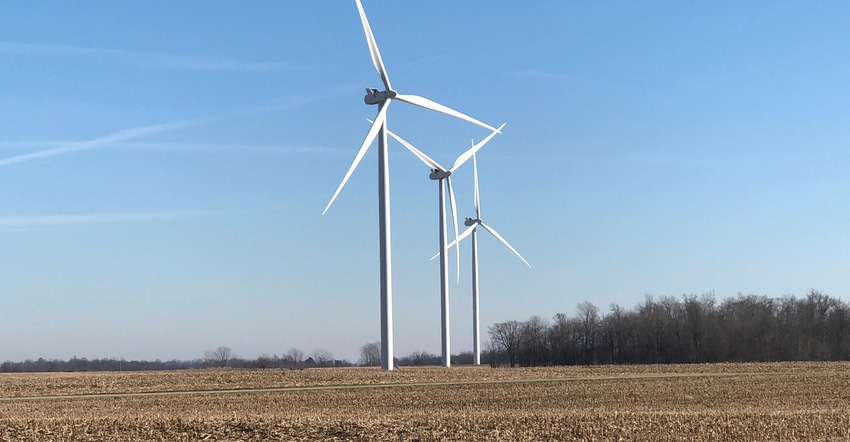February 4, 2019

Several key issues under discussion in the 2019 General Assembly could impact how you do business in the future. Indiana Farm Bureau follows critical issues for agriculture as debate unfolds in the Indiana Statehouse.
The state’s largest general farm group has lobbyists who work on behalf of members to let legislators know where IFB stands on various issues. Randy Kron, president of IFB, says those positions are always based on policy adopted by IFB delegates.
Here are a few key issues IFB is watching closely:
• Rural broadband. No less than five bills were introduced by mid-January on this topic. IFB policy is clear — the goal is for rural broadband to reach every last mile in rural areas. Gov. Eric Holcomb has committed $100 million to help make this happen. The key now is to make sure the Legislature allows this money to be used as intended, and to make sure regulations aren’t enacted that might interfere with extending rural broadband. Kron noted last summer that extending broadband was a top priority.
• Rural school funding. Increasing pay for teachers is on Holcomb’s priority list. IFB wants to make sure funding for rural schools isn’t forgotten in the discussion about teacher pay.
If Hoosiers want to maintain and improve education, teachers need more pay. Quality teachers are leaving the profession, earning more elsewhere. But teacher pay isn’t the only issue for many rural schools. Bills that could affect rural schools have been introduced. IFB staff is analyzing them.
• Extra-territorial authority of towns and cities. Sen. Phil Boots of Crawfordsville authored a bill that would restrict the ability of towns and cities to control activities far outside their borders that should naturally fall under county or state control. IFB staff explains this isn’t about annexation. It’s about existing statutes that might allow a city or town to impact what happens up to 10 miles outside its borders. Things like watercourses and wind farms could be impacted.
If this type of authority isn’t challenged now, IFB officials believe it might not be long before a city or town tries to limit agricultural activities using these statutes. This bill certainly could impact decisions you can or can’t make down the road. Even if it’s somewhat technical and abstract, it’s an important one to watch.
• Assessment uniformity. This one may not get your blood boiling either, but IFB believes it’s important enough to be on its list of top priority issues. While it’s technical, it relates to property tax assessment procedures. Specifically, it would allow a county to ask the Department of Local Government Finance to conduct assessment of a commercial building or structure and lay out procedures for doing the assessment. Sen. Brian Buchanan of Lebanon authored a bill that would make this happen.
At issue are current appeals on assessment for “dark stores.” That’s a practice by which big-box chain stores appeal for a lower assessment on a new store by substituting the vacant, older store instead.
This issue also relates to inconsistencies in practices assessors use from county to county. The outcome could impact your share of the local property tax bill, now or in the future.
Comments? Email [email protected].
You May Also Like




